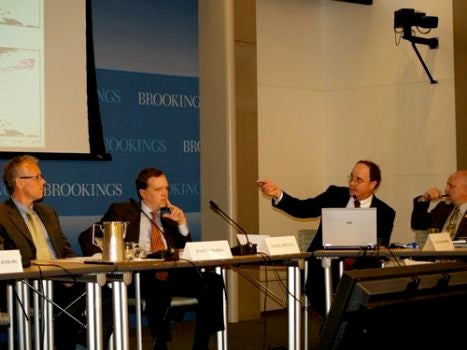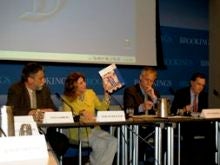EDF mostly works on ocean fisheries, but we took some time out a few months ago to meet with Willy Phillips from Columbia, North Carolina to see how he fishes using pound nets on the Scuppernong River. Willy owns Full Circle Crab Company, Inc. and he also fishes for yellow perch, shad and other fish that mostly come to the river after spending part of their life in the ocean.
Pound nets are an ancient fishing method. They’re basically fish traps: fish swim in but can’t swim out. Fishermen simply pull the nets up and harvest the fish. There’s virtually no bycatch or waste because unwanted fish are thrown back unharmed into the river.
Here are two video clips of my trip out on the river with Willy. I was on a rocking boat surrounded by flopping fish and working fishermen who were very gracious to this city boy.
VIDEO 1: This is the start of the pound net fishing process. The fishermen pull the nets up until the fish are close to the surface where upon they can be scooped up with smaller nets.
httpv://www.youtube.com/watch?v=7-QtQaJA0Kw
VIDEO 2: As you can see, the nets are loaded with fish. The herring fishery is closed in North Carolina and herring constitutes most of the fish you see here that are being thrown back into the river.
httpv://www.youtube.com/watch?v=rEBl9StVXfw


